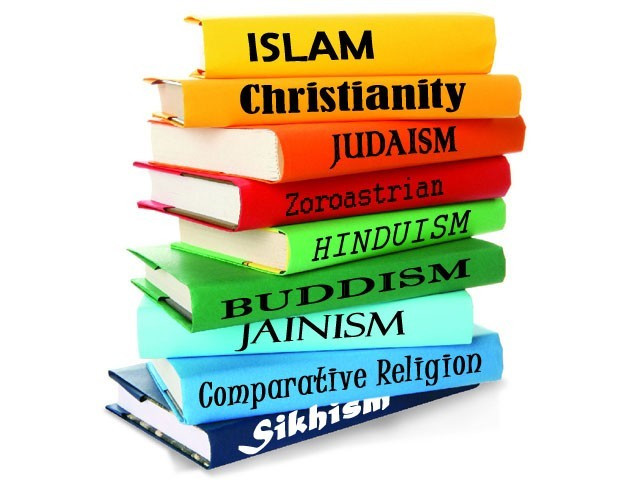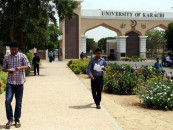‘Why reinforce religion in a society struggling with extremism?’
As far as humanities are concerned, Dr Naqvi said, “The heart of humanities lies in literature and philosophy.”

As far as humanities are concerned, Dr Naqvi said, “The heart of humanities lies in literature and philosophy.”
After attending nearly a half-a-day’s worth of sessions on the soon-to-be-launched Habib University, Sheema Kermani was disappointed to learn that the university is not offering courses in music and dance.
The dancer and women’s rights activist fired one question after another at the very end of the session on ‘Humanities and Social Sciences for the Postcolonial World’, which was part of the First Annual Habib University Conference on Postcolonial Higher Education on Saturday.

“Which language will you be teaching your students, given a majority of students seeking higher education have little to no understanding of the English language?” “Why are we talking about a year-long course on Islamic traditions? Don’t you think it is time we move away from merging religion with humanities?”
With a guilty smile on his face, Dr Nauman Naqvi, the acting dean of Habib University’s School of Arts, Humanities and Social Sciences, admitted he need some time to recover from the onslaught. As far as humanities are concerned, Dr Naqvi said, “The heart of humanities lies in literature and philosophy.” Like other Western institutions, Habib University will also teach Aristotle and Plato but its students will also read the Quran, he explained.
“[At the start of the day] we were very excited that this would be a liberal arts university with a liberal approach,” Kermani said, stressing on the need to remove religion from humanities to make society free of the extremism that permeates today.

Dr Naqvi disagreed. “We cannot completely disown or disinherit Islamic traditions,” he said, adding that faith and knowledge do not exist in some binary forms. “Large domains of human thought cannot be dismissed simply by saying it’s irrational,” he added, making a case for the study of Islamic history and traditions, which will be a year-long course at Habib University.
Earlier in the session, Dr Ravindran Sriramachandran, an assistant professor of international studies at American University of Sharjah, made a case for reading vernacular classics. “To read the [vernacular] classics is better than to not read the classics,” he said. For Dr Ravi, a classical does not necessarily teach us something new. “It says something we already knew but now acknowledge in a whole new way.”
Languages are independent, he pointed out, adding that they provide man a particular association with the world itself. “Pupils in the olden days did not learn Latin or Greek merely to speak it,” he said.
Published in The Express Tribune, October 20th, 2013.



















COMMENTS
Comments are moderated and generally will be posted if they are on-topic and not abusive.
For more information, please see our Comments FAQ